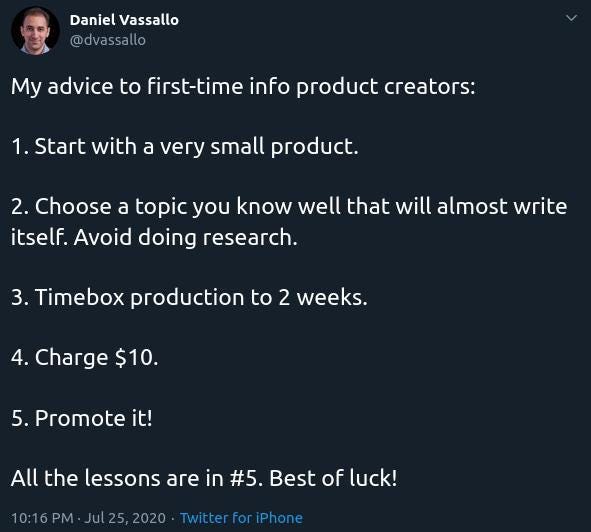Do the Opposite #69
The Dangers of Habit Streaks (and How to Overcome Them), Grow New Brain Cells, Better Mornings, Non-Euclidean Worlds, Debunking Space Myths
Good News Everyone!
Welcome to the newest issue of the Do the Opposite newsletter, sent every other Monday!
If you enjoy reading it, help it grow!
Subscribe to the free version of this newsletter and start getting a letter every other week.
If you want to help Do the Opposite grow, you can subscribe to the paid version or upgrade your existing subscription to a paid one (à la Patreon):
If you want to share any resources, articles, books or anything else with the community, please reply to this email with your recommendations or DM me on Twitter!
The Dangers of Habit Streaks (and How to Overcome Them)
We all know that streaks are an effective way to get ourselves motivated to stick to habits over time. If I’ve been meditating every day for 25 days in a row, I want to continue my streak and make it to day 26. The longer I keep up the streak, the harder it is for me to interrupt it: the sunk cost bias working in our favour.
Majority of habit change apps take advantage of this dynamic, and make quitting even more painful with email reminders to keep up your streak, push notifications, and other similar techniques.
“But these are all good things, Alex! Streaks force us to stick to habits! Where are the dangers you promised?”
The danger is quitting the streak. It’s not a big problem if the streak wasn’t long, but if it was — it can be very discouraging to face having to restart it. So what we end up doing is ignoring the habit for weeks. I’ve been there recently with my meditation habit and with learning French.
A habit streak is similar to an accelerating car: the speed works for us because we’re able to cover vast distances in a short amount of time, but that same speed can become disastrous if we hit something and are forced to abruptly stop.
We get way too attached to a meaningless number and act like the count matters more to us than the habit itself. In short term that might be true as we’re still feeling disappointed, but we want to focus on long term and that means focusing on our progress with the habit itself.
The cure is to stop thinking about the past: how bad losing the streak was, and to recommit to the habit on the spot. It’s totally OK to take a couple of days off after breaking a long habit streak, but after that we need to stop looking back & constantly going over what could have been if we just stuck to it, and mechanically restart the habit. I say “mechanically” in a sense that you just do it; don’t overthink whether you should or not.
You can try Mel Robbins’ method of counting from 5 to 1 and just doing it when the countdown is over. Once you’ve restarted it, you’re in the clear as you’ll be more focused on maintaining the current streak than on feeling sad about the old one.
The main goal is to cut the time it takes to forget the discouragement of losing a streak and come back to the habit.
Interview for the Stack Overflow Podcast
I’ve recently been interviewed by Stack Overflow on the subject of creating the #100DaysOfCode challenge, growing the community over the years and the next steps. I also talk about habit formation and how the principles of it have been a part of the challenge DNA from the start.
Listen to it here or on your favourite podcast app!
Articles
Anytime I complain about lacking something I need to pursue my hobbies and goals, I remind myself of Elvis’s story. He learned to code on his Nokia phone. Can you even imagine that? No. more. excuses.
“Where Will Everyone Go?” by Abrahm Lustgarten
The Arctic is melting and it’s just a question of time before the climate on Earth changes enough that many geographical areas will become inhospitable for various reasons: too hot, too much rain, flooding, rising sea level, etc. Abrahm explores what mass climate relocation will look like for the world.
“8 Powerful Evening Habits That Will Prepare You For a Better Tomorrow” by Thomas Oppong
It’s very difficult for me to come to terms with an idea of the whole day being pre-planned from waking up to closing my eyes at night. It somehow feels too restrictive. Having no structure to my days is also not acceptable: nothing would get done and I wouldn’t make progress towards my goals and dreams. The solution for me and for many others dealing with this dilemma is to have *some* structure, blocks of habits stacked together, or so called morning and evening routines. Thomas shares some great tips on how to set up an evening routine that will help you jump start the next day.
Videos
How Stardew Valley Was Made by Only One Person | ThatGuyGlen
When I first heard of Eric Barone and his journey of making Stardew Valley (an extremely popular indie game) all by himself, for more than 4 years, without quitting, I was amazed. That includes: writing the code for the game, composing music, drawing pixel art, writing the story and creating various characters and locations. What’s even more impressive is that Eric kept remaking and improving all aspects of the game as his skills grew, for example he redid the pixel art for characters’ portraits multiple times.
We should all learn from people like Eric: the stubbornness, the drive, the long-term commitment to a project.
P.S. This YouTube channel has a lot more stories about the making of various highly creative games. If you’re into it, check it out!
How to Become a Morning Person | DevDuck
I’ve been watching a lot of Ben’s videos lately. He’s a software developer who is creating indie games on the side, sharing his progress through “DevLogs”. I love that he’s very realistic, down-to-earth, calm and friendly person, that doesn’t preach never-ending mindless hustle as a way of life. Ben has other hobbies, takes time to be with his girlfriend and friends.
This video might be covering a popular topic, but the advice there is priceless. I’ve been using Ben’s advice to start waking up earlier for about a week now, and I must say it works. The idea of a gradual transition of your sleep window to be earlier is brilliant. It’s very hard to make a sudden change (and stick to it) to wake up at 6am if you’ve been waking up at 9am most of your life. Gradual change is better.
Another good point no other video on the subject mentioned is to start a day from something you truly enjoy doing, not something you think you should do to become a super-productive uber-human. Instead of committing to going to the gym first thing in the morning, you could watch an episode of your favourite show or play a video game for half an hour. This is invaluable in the first months of your transition as you’re way more likely to wake up early if it’s for something you’ve been looking forward to!
You Can Grow New Brain Cells. Here's How | Sandrine Thuret
There’s a common misconception that we can’t grow new neurons. New research shows that to be false: our Hippocampus can produce around 700 new neurons per day. It’s been shown that this process is responsible for improving our mood and memory. If we are stressed, on a bad diet, don’t get enough sleep or exercise, neuron production decreases. Doing the opposite increases it (see what I did there? :), which leads to a slew of positive effects.
I was also glad to see that research shows that running significantly increases neuron production, which might be one of the reasons why people report improved mood after taking up running.
Non-Euclidean Worlds Engine | CodeParade
Mind-blowing. These experimental demos show the power of optical illusion and how easy it is to fool our perceptions. The potential applications for VR are fascinating.
Astronaut Chris Hadfield Debunks Space Myths | WIRED
Most of us find space and everything related to it to be fascinating and foreign. Despite our curiosity, or most likely, because of it, there are many misconceptions and myths surrounding the subject. Chris Hadfield, legendary Canadian astronaut, helps us tell truth from fiction.
I highly recommend Chris’s autobiography, “An Astronaut's Guide to Life on Earth” - such an entertaining and illuminating read!
Tweet of the Week

Ethos

Quotes
“The universe is full of magical things patiently waiting for our wits to grow sharper.”
— Eden Phillpotts
“Almost everything will work again if you unplug it for a few minutes, including you.”
— Anne Lamott
“Fear of living without a map is the main reason people are so insistent that we tell them what to do. The reasons are pretty obvious: If it’s someone else’s map, it’s not your fault if it doesn’t work out. If you’ve memorized the sales script I gave you and you don’t make the sale, who’s in trouble now? Not only does the map insulate us from responsibility, but it’s also a social talisman. We can tell our friends and family that we’ve found a good map, a safe map, a map worthy of respect.”
— Seth Godin

ZERNO APP
I am building an app called Zerno ― if you join the waitlist, you’ll get early access to the app!
YOUTUBE
There's also a YouTube channel with weekly videos on the same themes that are covered in this newsletter. Take a look at the channel here and let the ideas influence you into an improved and happier life!
TELEGRAM
Do the Opposite has a public Telegram channel. The content there is a little different than in the newsletter: faster to consume, a bit more random ― basically anything weird or interesting that catches my eye: articles, tweets, videos, images, etc. Hope to see you there as well! :)
SHARING IS CARING
If you find this newsletter helpful, you can help it grow by spreading the word!
Subscribe to the free version of this newsletter and start getting a letter every other week.
If you want to help Do the Opposite grow, you can subscribe to the paid version or upgrade your existing subscription to a paid one (à la Patreon):
Keep doing the opposite,
Alex Kallaway
Website: dotheoppo.site
Twitter: twitter.com/ka11away

